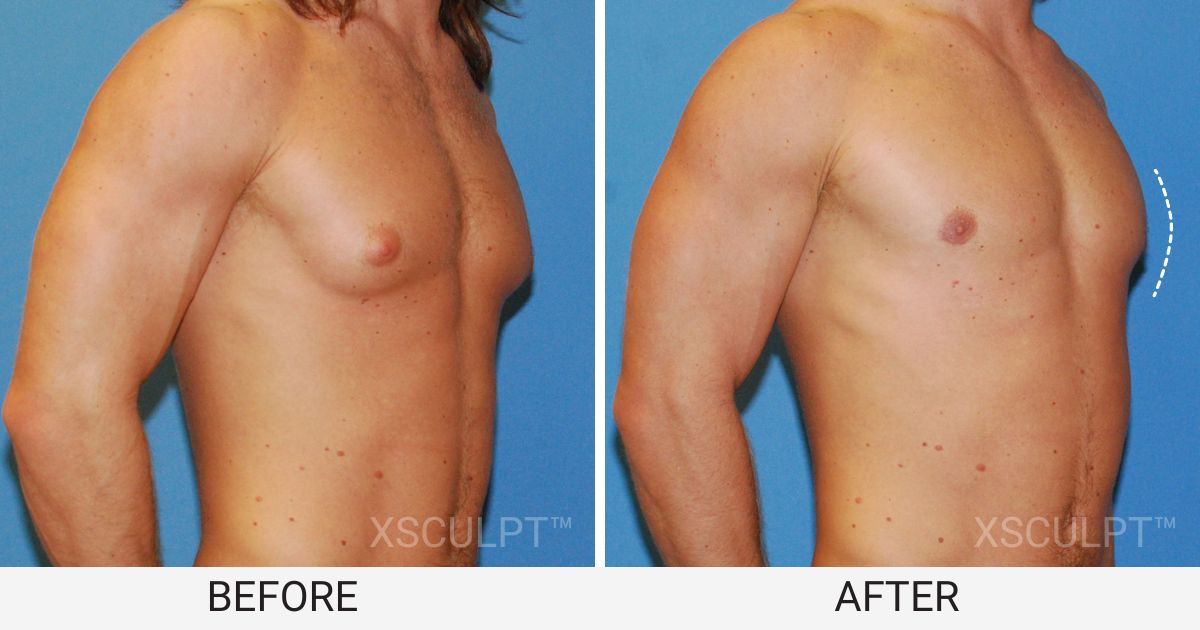Gynecomastia Anxiety
by Admin
Posted on 10-12-2024 01:29 PM

Causes and Risk Factors
Gynecomastia can be caused by a variety of factors, including hormonal imbalances, certain medications, and underlying medical conditions. An imbalance of estrogen and testosterone hormones is the primary cause of gynecomastia, as estrogen promotes breast tissue growth. This hormonal imbalance can occur during puberty, as a result of aging, or due to certain medical conditions such as hypogonadism or thyroid disorders. Additionally, certain medications, including anabolic steroids, antidepressants, and antibiotics, can contribute to the development of gynecomastia.
Symptoms and Diagnosis
The symptoms of gynecomastia can vary in severity and may include breast tenderness, swelling, and nipple discharge. In some cases, gynecomastia may be asymptomatic, and the condition may only be discovered during a routine medical examination. A diagnosis of gynecomastia is typically made through a physical examination, medical history, and laboratory tests to rule out underlying medical conditions. Imaging studies, such as mammograms or ultrasounds, may also be ordered to confirm the diagnosis and evaluate the extent of breast tissue enlargement.
Emotional and Psychological Impact
The emotional and psychological impact of gynecomastia can be significant, leading to feelings of embarrassment, shame, and anxiety. Individuals with gynecomastia may experience social withdrawal, avoiding situations that involve exposing their chest, such as swimming or changing in public. The condition can also affect relationships, as individuals may feel self-conscious about their body and hesitant to engage in intimate activities. Furthermore, gynecomastia can impact daily life, making it challenging to find clothing that fits comfortably and leading to difficulties with sleep and overall well-being.
Body Image and Self-Esteem
The impact of gynecomastia on body image and self-esteem cannot be overstated. Individuals with gynecomastia may experience negative self-talk, criticizing their body and perceiving themselves as unattractive or unmasculine. This negative self-perception can lead to a distorted body image, making it challenging to develop a positive and realistic self-concept. Moreover, the stigma associated with gynecomastia can exacerbate feelings of shame and embarrassment, further eroding self-esteem and confidence.
Anxiety and Depression
The anxiety and depression associated with gynecomastia can be debilitating, affecting an individual's ability to function in daily life. The constant worry about the appearance of their chest, the fear of being discovered or ridiculed, and the feelings of inadequacy can create a sense of hypervigilance, making it challenging to relax and engage in enjoyable activities. Moreover, the social withdrawal and isolation that often accompany gynecomastia can exacerbate feelings of loneliness and disconnection, increasing the risk of developing depression.
Treatment Options
Fortunately, there are various treatment options available for gynecomastia, ranging from medical therapies to surgical interventions. Medical therapies, such as selective estrogen receptor modulators (SERMs) and aromatase inhibitors, can help reduce breast tissue growth and alleviate symptoms. In more severe cases, surgical options, such as mastectomy or liposuction, may be necessary to remove excess breast tissue and restore a more masculine chest contour.
Lifestyle Modifications
In addition to medical and surgical treatments, lifestyle modifications can play a crucial role in managing gynecomastia and reducing associated anxiety. Engaging in regular exercise, maintaining a healthy weight, and avoiding substances that can exacerbate the condition, such as anabolic steroids, can help alleviate symptoms and improve overall well-being. Furthermore, practicing stress-reducing techniques, such as meditation or yoga, can help mitigate anxiety and promote emotional resilience.
Support and Resources
It is essential for individuals with gynecomastia to seek support and connect with others who have experienced similar challenges. Support groups, online forums, and counseling services can provide a safe and non-judgmental space to share experiences, receive emotional support, and develop coping strategies. Additionally, resources such as educational materials, online forums, and advocacy organizations can help individuals with gynecomastia stay informed about the latest treatments, including male breast reduction surgery, and research, reducing feelings of isolation and empowering them to take control of their condition.
Conclusion
Gynecomastia anxiety is a significant concern that affects not only the physical but also the emotional and psychological well-being of individuals with the condition. By understanding the causes, symptoms, and treatment options for gynecomastia, individuals can take the first step towards mitigating anxiety and improving their quality of life. It is essential to seek support, connect with others, and prioritize self-care to manage the emotional and psychological impact of gynecomastia.
FAQs
What is the main cause of gynecomastia?
Gynecomastia is primarily caused by an imbalance of estrogen and testosterone hormones, which can occur during puberty, as a result of aging, or due to certain medical conditions.
Can gynecomastia be treated with medication?
Yes, medical therapies, such as selective estrogen receptor modulators (SERMs) and aromatase inhibitors, can help reduce breast tissue growth and alleviate symptoms.
Is surgery necessary for gynecomastia?
In some cases, surgical options, such as mastectomy or liposuction, may be necessary to remove excess breast tissue and restore a more masculine chest contour.
Can lifestyle modifications help manage gynecomastia?
Yes, engaging in regular exercise, maintaining a healthy weight, and avoiding substances that can exacerbate the condition can help alleviate symptoms and improve overall well-being.
Are there support groups for individuals with gynecomastia?
Yes, support groups, online forums, and counseling services can provide a safe and non-judgmental space to share experiences, receive emotional support, and develop coping strategies.
Michael Law MD Aesthetic Plastic Surgery
10941 Raven Ridge Rd #101,
Raleigh, NC 27614,
919-256-0900
